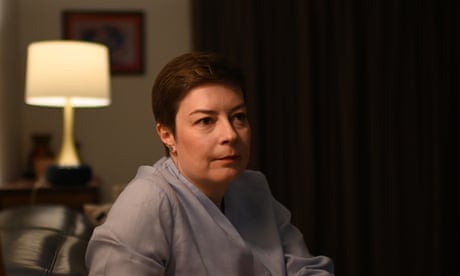- by foxnews
- 23 May 2025
As war unfolds in her homeland, Solomiya Rozhko adjusts to a ‘painful’ new reality in Brisbane
As war unfolds in her homeland, Solomiya Rozhko adjusts to a ‘painful’ new reality in Brisbane
- by theguardian
- 10 Apr 2022
- in news

Every day, Solomiya Rozhko wakes up inside an apartment in Brisbane and asks herself: "Is it over?"
"You just want it to be over," Rozhko says of the war in Ukraine. "You want your family and friends and your country to be safe."
As claims emerge of civilian executions, mass graves and atrocities such as rape, Rozhko watches what is unfolding in her homeland with horror.
This week, hundreds of bodies were discovered lying in the streets of Bucha after Ukrainian forces recaptured the territory from Russian troops.
"The atrocities are immense," Rozhko says. "I think the world is yet to see the extent of what's happened."I know if I was in those towns working, I could have been killed."
The 43-year-old arrived in Brisbane on 24 March with just three sweaters, a couple of pairs of jeans, her computer and some documents inside a small suitcase.
She is finding it challenging to get used to her "new reality".
"It's a very painful situation because Ukraine is my homeland," she says. "It's where I work and where I grew up, where I went to school."
More than four million people have left Ukraine since the Russian invasion began, with millions more displaced inside the country.
The president of the Ukrainian Community of Queensland, Peter Bongiorni, says he is aware that up to 80 people have recently arrived in south-east Queensland from all over Ukraine - most of them on tourist visas.
Rozhko was among those to secure a temporary visitor visa, before moving into her mother's apartment in Coorparoo.
Australia announced a temporary three-year humanitarian visa for Ukrainians who were forced to flee Russia's military invasion in March, allowing people to work, study and access Medicare.
Since 23 February, the government has granted more than 6,000 visas to Ukrainians in Ukraine, with the majority being temporary visas, a spokesperson from the Department of Home Affairs says.
As of 3 April, more than 1,600 of these visa holders have arrived in Australia, according to the department.
Bongiorni says those with Australian visas who are still in Ukraine may be stalled by issues with their vaccination status, or their documents being destroyed in the war.
"While Australia at a federal level has said as long as you can prove your identity we'll let you in, I know some of the airlines still require passports to be shown," Bongiorni says. "So there's some logistical issues around working through that."
He says it's also possible that some Ukrainians may have found safe havens in European countries and decided to go elsewhere.
"I daresay there'd also be people that have applied but just don't have the funding to be able to buy their tickets. So they're just biding their time to save their money."
Rozhko didn't bide her time.
When the war broke out in February she was on a work trip in Lviv, the city where she was born, near the Polish border. She woke up to a series of missed calls from concerned family members and friends.
"I opened the news and was horrified with what I saw with all the bombings all over Ukraine," she says.
Planes weren't flying at the time but Rozhko, who works for the EU advisory mission in Ukraine, was able to find a route out through Poland with some of her colleagues.
Rozhko fears returning home to Kharkiv, a city about 40km from the Russian border, where she had been living for the past five years.
Once Ukraine's second most populous city, parts of Kharkiv have been turned to rubble from constant shelling by Russian forces.
As the war rages on, she worries about her future.
The Department of Home Affairs says the government "will provide further advice" to support the transition of Ukrainians on to temporary humanitarian visas "in due course". It says additional support will provided to help with access to long-term accommodation and to Medicare.
The Ukrainian Community of Queensland is also providing food and clothing to those who have recently arrived, as well as assisting them with enrolling children in schools and immigration support.
"We have worked with the Queensland government, so there is free quarantine for those who can't prove Covid vaccination status and we've got an arrangement where any emergency health needs will be covered by the Queensland government for those who don't have insurance or access to Medicare," Bongiorni says.
He says some may choose to return to Ukraine, but others may want to stay in Australia.
"There's definitely some that want to go back when it's safe to do so to rebuild their country but some would prefer to stay because they already have family here," Bongiorni says.
For Rozhko, there's a patriotic passion for Ukrainian sovereignty and self-determination that has materialised in the past month.
"Ukrainians are fighting for their future now, and they're fighting for the choices that they've made continuously in the last 30 years since becoming independent," she says."It's about protecting your identity, protecting who you are and who you want to be and protecting the next generation."
- by foxnews
- descember 09, 2016
United Airlines flight returns to Hawaii after concerning message found on bathroom mirror; FBI investigating
United Airlines Flight 1169 to Los Angeles returned to Hawaii after a "potential security concern" aboard the plane. The FBI and police are investigating.
read more


